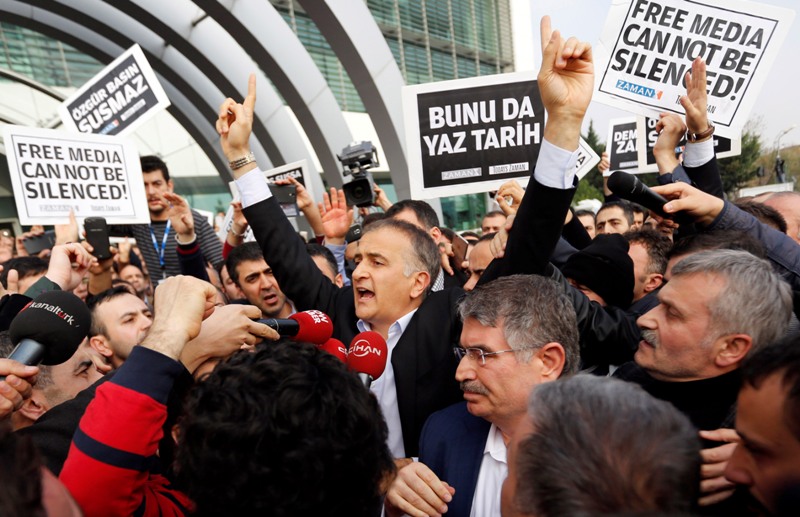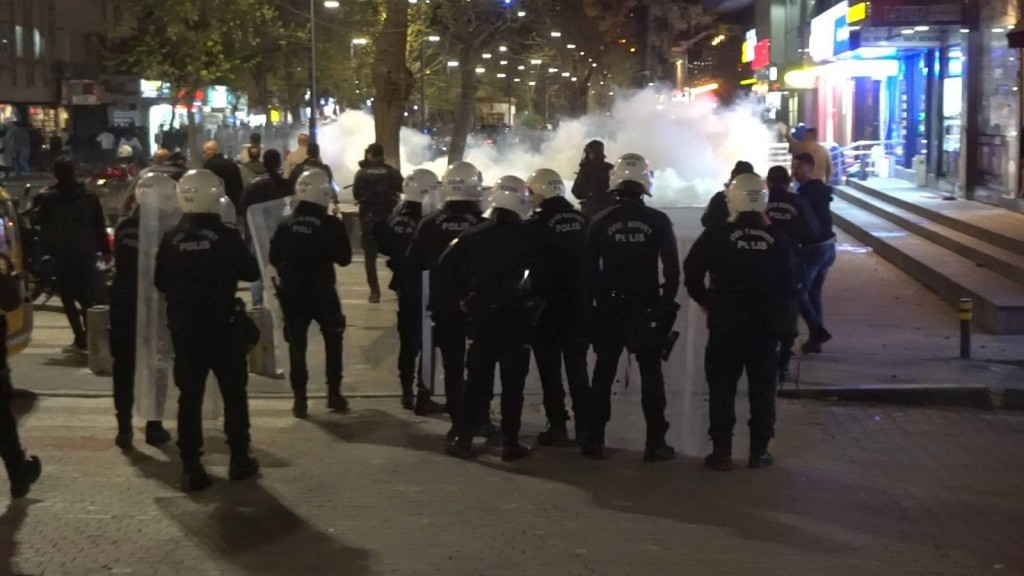The International Press Institute (IPI) and its Turkish National Committee today condemned Turkish authorities’ raids on media outlets with links to a former ally-turned-critic of President Recep Tayyip Erdogan and called for the release of journalists detained in the operation.
Police targeted the Zaman newspaper and the Samanyolu Media Group, both of which are tied to U.S.-based Islamic cleric Fethullah Gulen, on accusations “of founding and directing an armed terror organization, being a member of this organization, and engaging in forgery and slander,” the Istanbul Public Prosecutor’s Office reportedly said.
The move came one day after Erdogan announced a new campaign against Gulen and his supporters, and almost one year to the day after the eruption of a corruption scandal that threatened to bring down his Justice and Development Party (AKP) government. Erdogan claims that Gulen supporters fabricated elements of the corruption allegations in an effort to oust him from power.
Some two dozen people were reportedly detained in yesterday’s operation, but it was unclear how many were still in custody, as local sources indicated some had been released.
IPI’s Turkish National Committee said in a statement yesterday that the raids were “yet another sign that striking a blow against the freedom of the press in order to solve a political problem has become a tradition in Turkey”, adding: “Just as critical journalists have been arrested in the past by alleging that they were ‘coup plotters’ or ‘terrorists’, now our colleagues are being targeted by calling them the members of ‘the parallel structure’ within the state.”
IPI Senior Press Freedom Adviser Steven M. Ellis noted that the raids were the latest in a string of incidents in which Turkey’s leaders sought to suppress media coverage of corruption allegations that have dogged the AKP.
“Last month an AKP lawmaker secured a ban on media coverage of a parliamentary inquiry into the corruption accusations,” he said. “Journalists who have reported on claims of corruption have faced criminal defamation charges or online harassment. In March, the government banned Twitter and YouTube in what was widely perceived as an effort to keep voters in municipal elections from hearing about corruption allegations.
“Pulling a veil of secrecy over accusations of corruption and targeting those who raise them, rather than seeking to rebut the allegations themselves, will serve only to undermine public confidence in the rule of law and democracy in Turkey.”
Ellis agreed that yesterday’s developments appeared to be part of a trend by Turkey’s government in recent years to use terrorism accusations to bring its critics to heel.
“In early 2012, we saw some 100 journalists behind bars in Turkey, most taken into custody on charges – and in raids – similar to those described yesterday,” he said. “That number had dropped to approximately 19 by early October of this year, but yesterday’s detentions could very well double it and make Turkey once again a contender for the title of ‘world’s leading jailer of journalists’. Worse, many of those previously released could face a return to prison depending on the outcome of ongoing trials or appeals.”
Yesterday’s developments come amid an extremely worrying media freedom situation in the country, one that led IPI delegates on a joint press freedom mission to Turkey with the Committee to Protect Journalists from Sept. 30 to Oct. 2 to warn that an erosion of media freedoms threatened the country’s democracy.
In addition to a number of orders banning media from covering certain topics, journalists and media owners in Turkey face “[g]overnment pressure – both direct and indirect…, a weakened system of checks and balances and a polarised political climate in which toxic, anti-media rhetoric is allowed to flourish”, IPI delegates found.
IPI’s affiliate, the South East Europe Media Organisation, similarly expressed alarm about yesterday’s developments.
“The latest pressure on journalists and media staff from the newspaper Zaman and Samanyolu TV, as well as the detention of journalists, shows an animosity by authorities toward the media,” SEEMO Secretary-General Oliver Vujovic said. “It all looks like political pressure on media.”
IPI’s Turkish National Committee said yesterday that the most recent raids showed a need for Turkey to uphold “the fundamental principles of the rule of law, and the freedom of the press”, adding: “While revealing the problematic structure of Turkey’s democracy, this process also proves that democratisation is not possible as long as violations of freedom of the press continue.”



